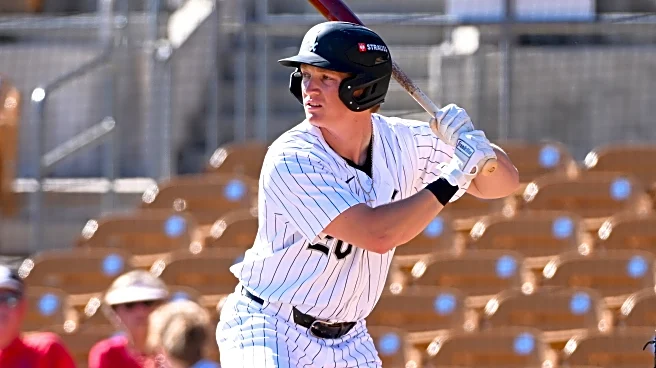What's Happening?
WNBA Commissioner Cathy Engelbert responded to criticism from Minnesota Lynx player Napheesa Collier during a press conference. Collier had criticized the WNBA leadership and suggested Engelbert should resign to allow new leadership. Engelbert, who has extensive business experience, refuted the idea of resignation and emphasized her commitment to facing challenges. She denied making remarks about Indiana Fever's Caitlin Clark, which Collier claimed were made in a private conversation. Engelbert acknowledged the need for new discussions about the state of the WNBA and expressed disheartenment over players feeling undervalued. The commissioner plans to meet with Collier to address her concerns.
Why It's Important?
The exchange highlights ongoing tensions within the WNBA regarding leadership and player satisfaction. Collier's criticism and Engelbert's response underscore the need for improved communication and appreciation of players within the league. The situation is significant as it coincides with negotiations for a new collective bargaining agreement, focusing on player compensation and other issues. The outcome of these discussions could impact the league's operations and player relations, potentially leading to a lockout if unresolved. The incident also reflects broader challenges in professional sports regarding player empowerment and leadership accountability.
What's Next?
Engelbert plans to meet with Collier to discuss her concerns and those of other players. The WNBA is negotiating a new collective bargaining agreement, which could lead to a lockout if not resolved. The league must address player satisfaction and compensation to prevent further discord. Engelbert's commitment to dialogue with players may help bridge gaps and improve relations. The ongoing discussions will be crucial in shaping the future of the WNBA and ensuring player needs are met.
Beyond the Headlines
The situation raises questions about leadership styles and player empowerment in professional sports. It highlights the importance of effective communication and appreciation in maintaining a positive league environment. The incident may prompt other sports leagues to evaluate their leadership and player relations strategies. It also reflects broader societal shifts towards increased player advocacy and demands for transparency and accountability from sports organizations.










